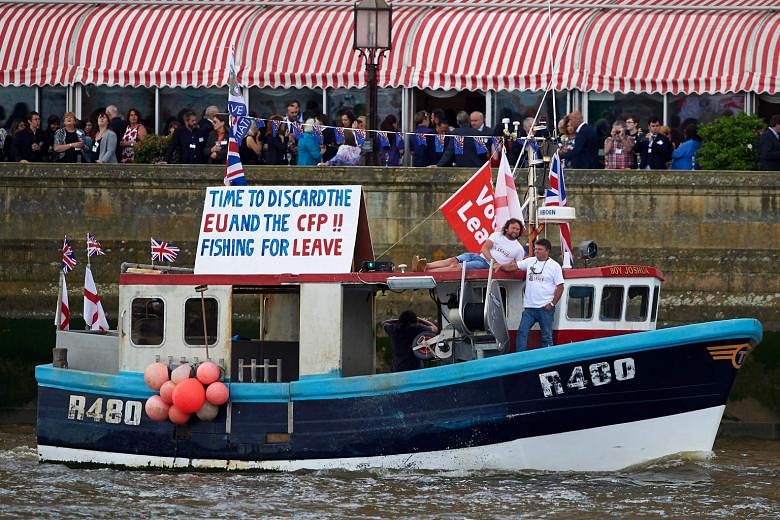Strikingly, the Brexit voting has exposed the yawning gap between the ordinary worker and the elite.
Part of this disconnect is tied to the historical class divisions in much of British society and politics, and to how the metropolitan and mobile British middle-class has benefited much more from European Union (EU) membership than the working classes in the heartlands.
Swathes of supporters of the left-wing Labour Party ignored their official party line and now- beleaguered party chief Jeremy Corbyn, who had campaigned (half-heartedly) for Remain.
England and Wales' industrial heartlands chose to leave the EU, while London - and Scotland - voted to stay in.
The Leave voters did so even though financial institution leaders and statistics chiefs warned that Britain would be poorer off if it left the EU.
The extent to which the Establishment was out of touch with the people can be seen in the decision - now viewed as a colossal miscalculation - to call for a referendum in the first place.
Outgoing Prime Minister David Cameron did so as a gamble, expecting Remain to win the vote and then to use this victory to shore up his position against his anti-EU colleagues in the ruling Conservative party.
But he and others did not realise the strength of anti-immigration sentiment, and the degree to which voters had lost faith in the powers that be.
THE SINGAPORE TAKEAWAY
Singapore, unlike Britain, is a compact city with no real hinterland, but an almost similar theme exists here.
First, in Britain, the Establishment tends to be educated in tight and interconnected circles, with a disproportionate number of MPs having been to Eton and Oxbridge, for example.
A report by the Sutton Trust education charity last year showed that a third of MPs in the new House of Commons, the lower house of Parliament, were privately educated. And one in 10 of these MPs went to Eton.
For Singapore, where political and private-sector leaders tend to operate or be drawn from fairly similar professional, community or social networks, it is a lesson to ensure this does not result in leaders being disconnected from the people.
More fundamentally, the forces of economic growth in many countries elsewhere often result in people benefiting unevenly, an economic divide that can spill over into politics if left unchecked.
Labour economist Walter Theseira of UniSIM points out that most economies have significant disparities in income and wealth between their leading cities, where much of the innovation, wealth and growth are concentrated, and the rest of the country, which often lags behind.
"These differences often lead to significant differences in political attitudes and decisions between the leading cosmopolitan cities and the heartland, as Britain demonstrated in the Brexit vote," he says.
"The same challenge exists in Singapore and came to the fore in the 2011 general election," he adds.
Then, many voters expressed their belief that the benefits of Singapore's immigration-driven economic growth in the 2000s were not accruing to them, while they bore the costs in terms of heightened competition and overcrowding, says Dr Theseira. "The heartland must benefit from, and believe they benefit from, the Government's policies. Otherwise there will naturally be an Establishment-popular divide," he adds.
A tighter connection between leaders and the led is needed, says Institute of Policy Studies deputy director of research Gillian Koh.
"Political leaders have then to be closely connected to the ground, respect the full suite of concerns among citizens - from the personal and the immediate to the community and national level," she says.
While these concerns differ in nature, "the best leaders will be able to join the dots between the micro-level and the macro-level of existence and concerns" and show people how the two interact with each other, she adds.



